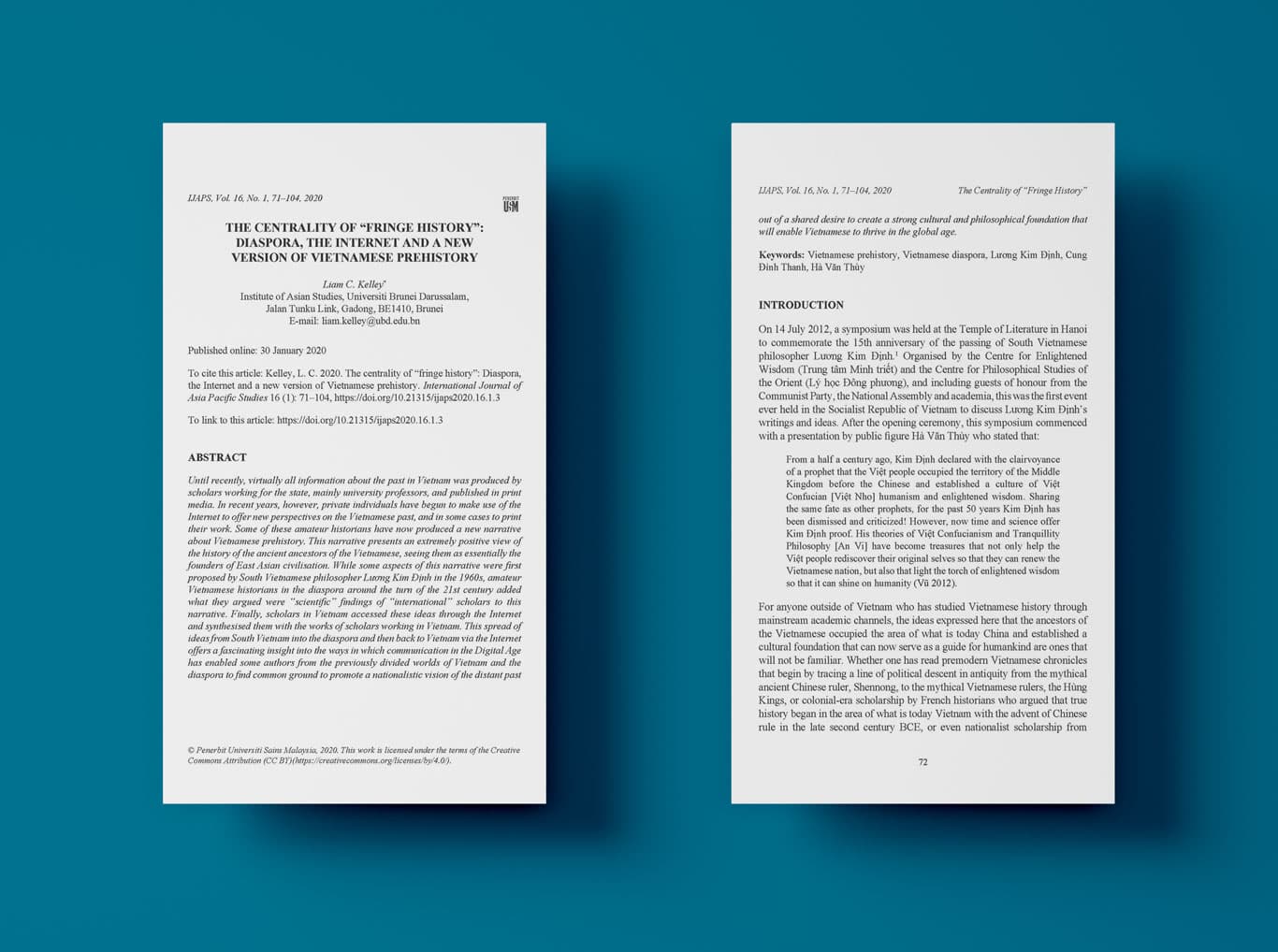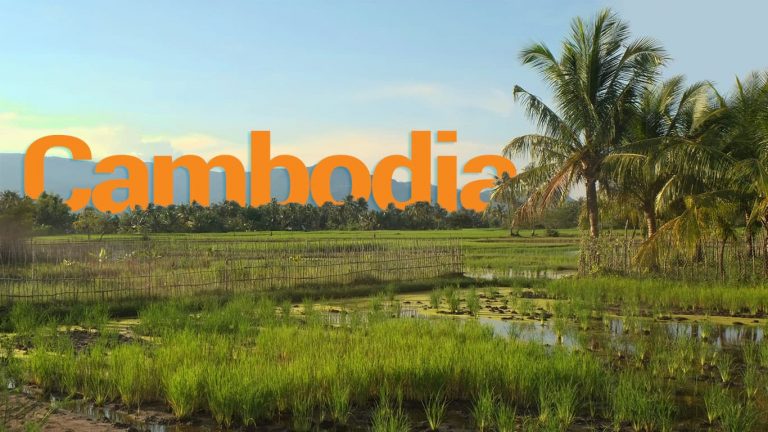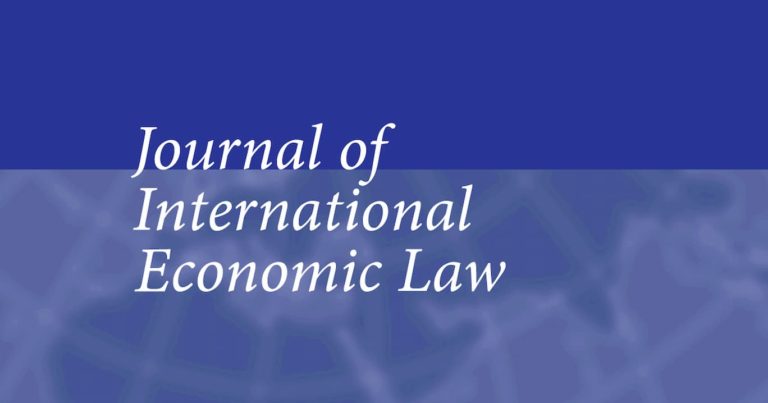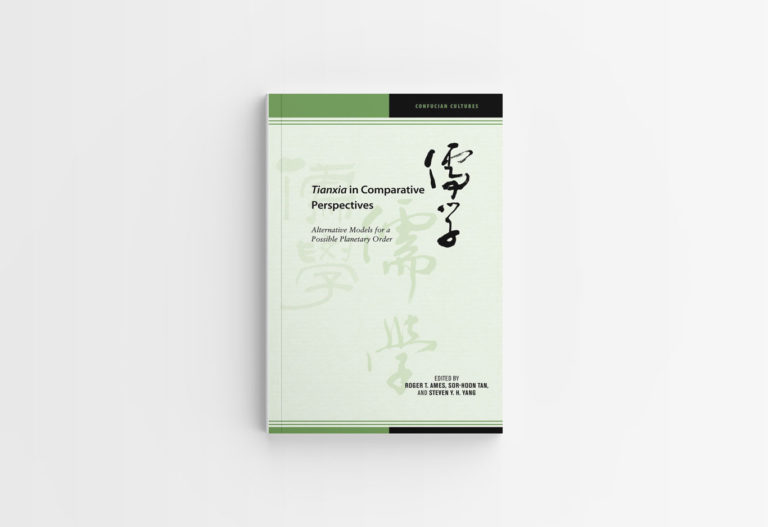Associate Professor Liam C. Kelley of the Institute of Asian Studies at Universiti Brunei Darussalam has just published an article on “The Centrality of ‘Fringe History’: Diaspora, The Internet and a New Version of Vietnamese Prehistory” in the International Journal of Asia Pacific Studies.
The abstract of the article is as follows:
Until recently, virtually all information about the past in Vietnam was produced by scholars working for the state, mainly university professors, and published in print media. In recent years, however, private individuals have begun to make use of the Internet to offer new perspectives on the Vietnamese past, and in some cases to print their work. Some of these amateur historians have now produced a new narrative about Vietnamese prehistory. This narrative presents an extremely positive view of the history of the ancient ancestors of the Vietnamese, seeing them as essentially the founders of East Asian civilization. While some aspects of this narrative were first proposed by South Vietnamese philosopher Lương Kim Định in the 1960s, amateur Vietnamese historians in the diaspora around the turn of the 21st century added what they argued were “scientific” findings of “international” scholars to this narrative. Finally, scholars in Vietnam accessed these ideas through the Internet and synthesized them with the works of scholars working in Vietnam. This spread of ideas from South Vietnam into the diaspora and then back to Vietnam via the Internet offers a fascinating insight into the ways in which communication in the Digital Age has enabled some authors from the previously divided worlds of Vietnam and the diaspora to find common ground to promote a nationalistic vision of the distant past out of a shared desire to create a strong cultural and philosophical foundation that will enable Vietnamese to thrive in the global age.
To view the entire article, please visit the International Journal of Asia Pacific Studies website.





